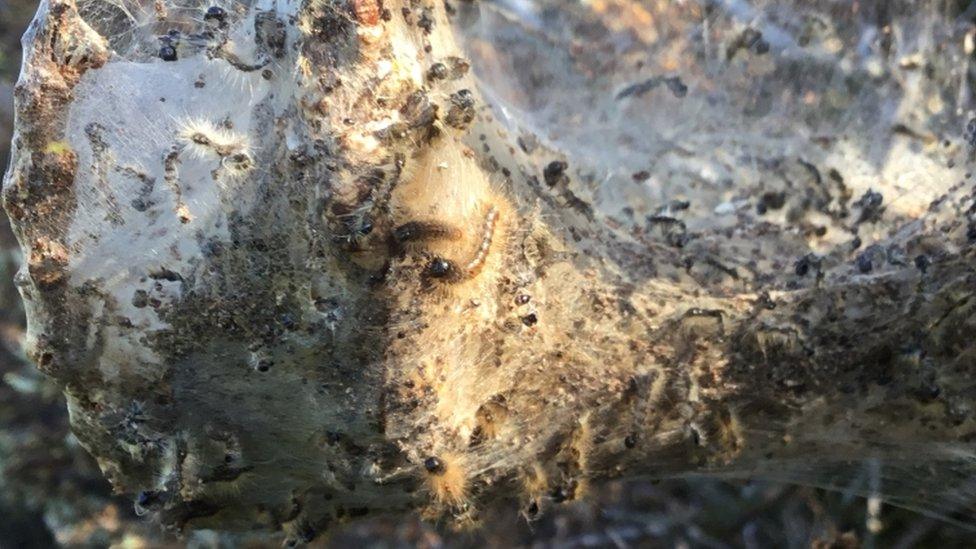Oak processionary moth pest discovered on Cardiff trees
- Published
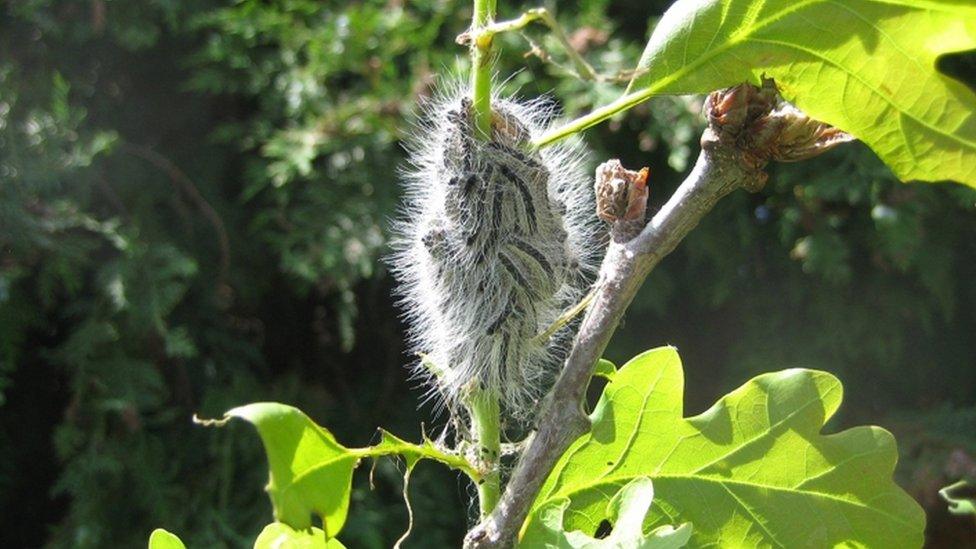
The caterpillars turn into pupae, then moths in late July
A finding of oak processionary moth pest (OPM) has been confirmed in Wales after similar outbreaks in Germany and the Netherlands.
A plant health notice, external has been issued which requires the treatment and felling of infested material.
The caterpillars, which turn into pupae, then moths in late July, defoliate and weaken oak trees and are a hazard to human and animal health, external.
Their tiny toxic hairs can trigger allergic reactions and skin irritation.
Natural Resources Wales said four trees planted near Cardiff Central Station are affected and will be chopped down.
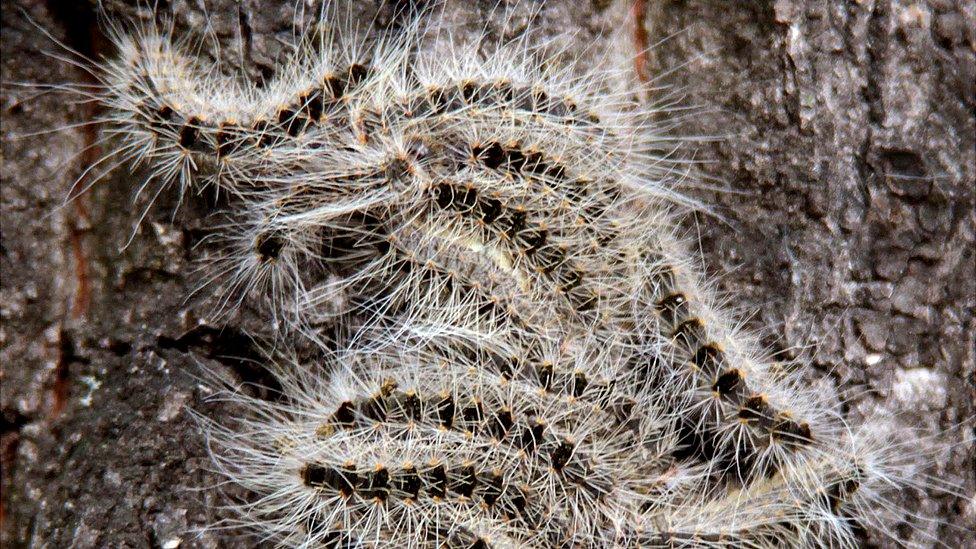
The caterpillars form big clumps and nests on oak trees
The trees will be chemically sprayed using an insecticide and then removed.
The Welsh Government said its first priority is to ensure containment and clearance of the disease, but said it will work with Natural Resources Wales and Cardiff Council on the replacement of the trees.
The affected trees had been imported from an area of Europe where OPM is widespread.
- Published9 July 2019
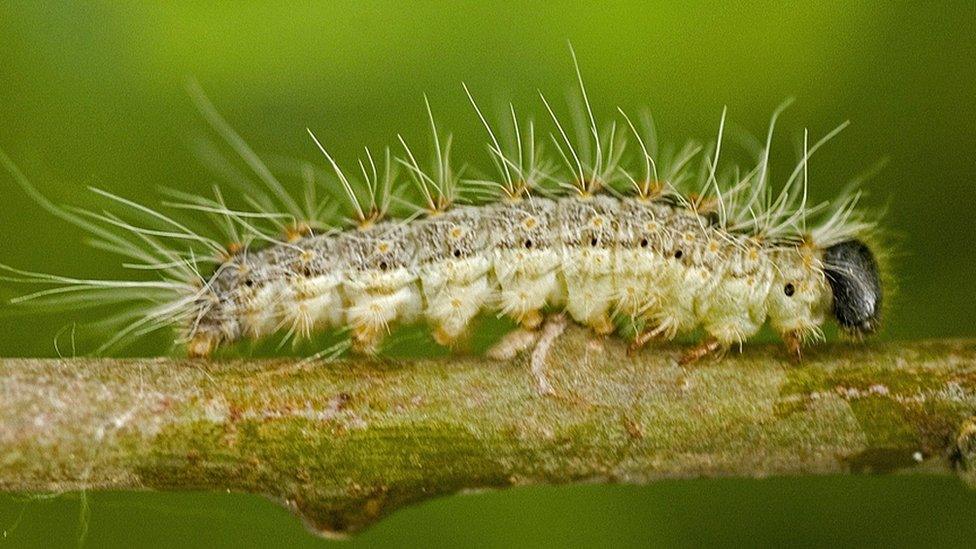
- Published28 April 2018
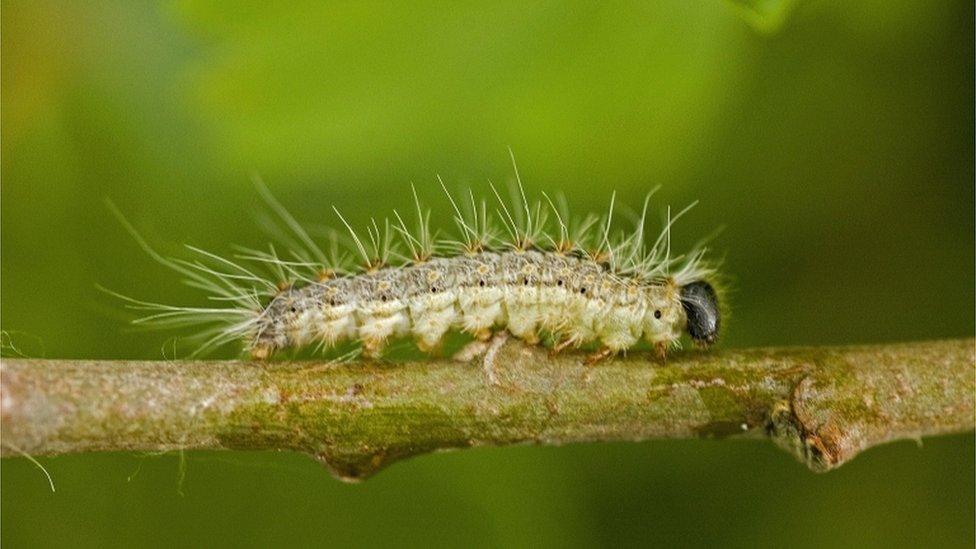
- Published20 May 2018
